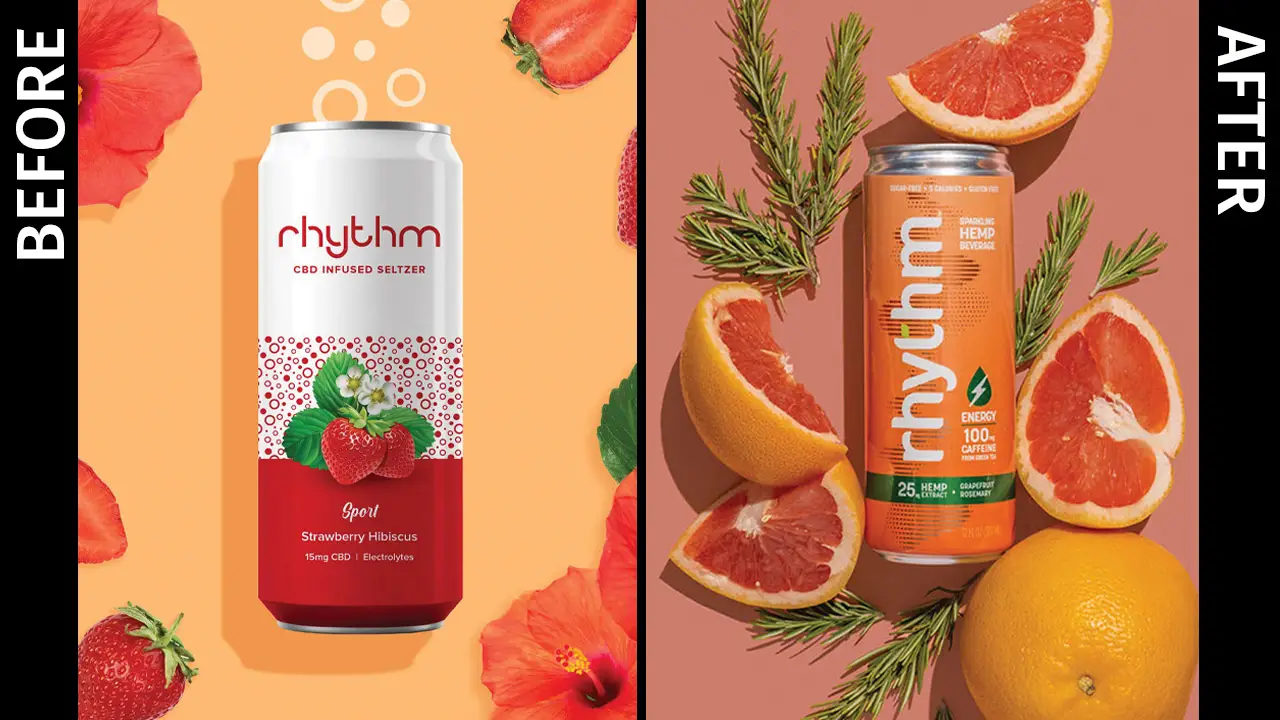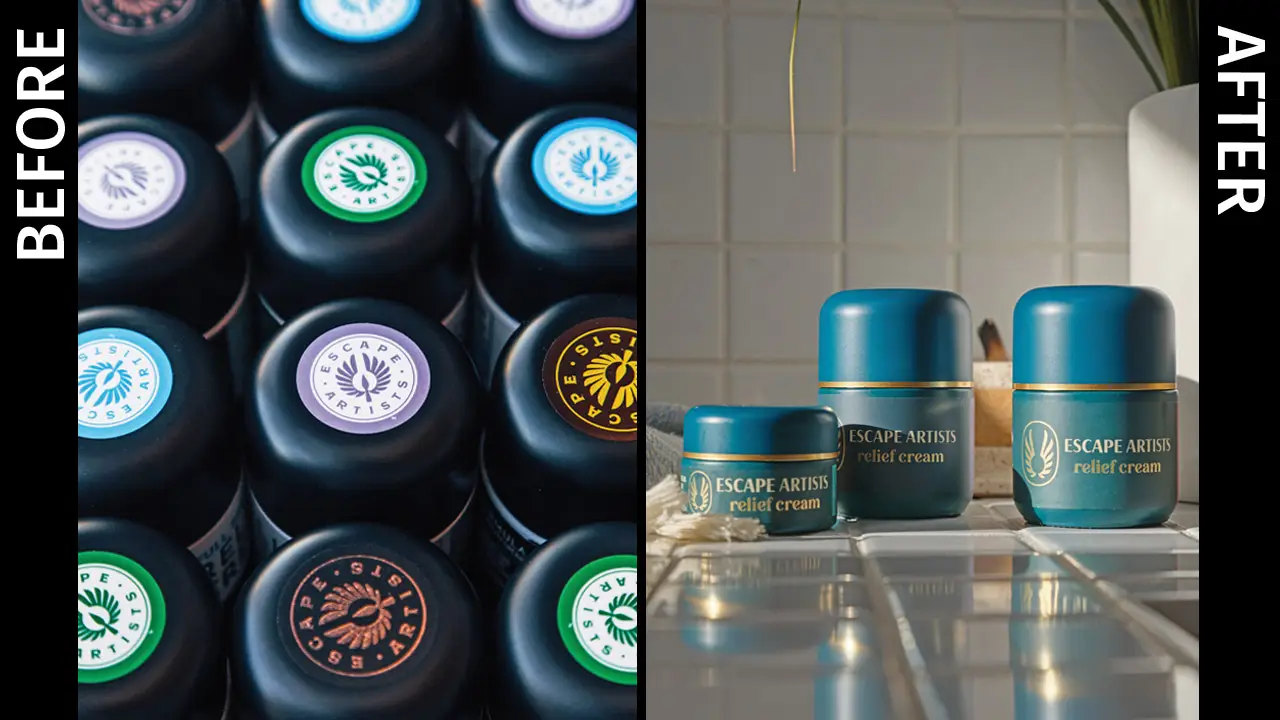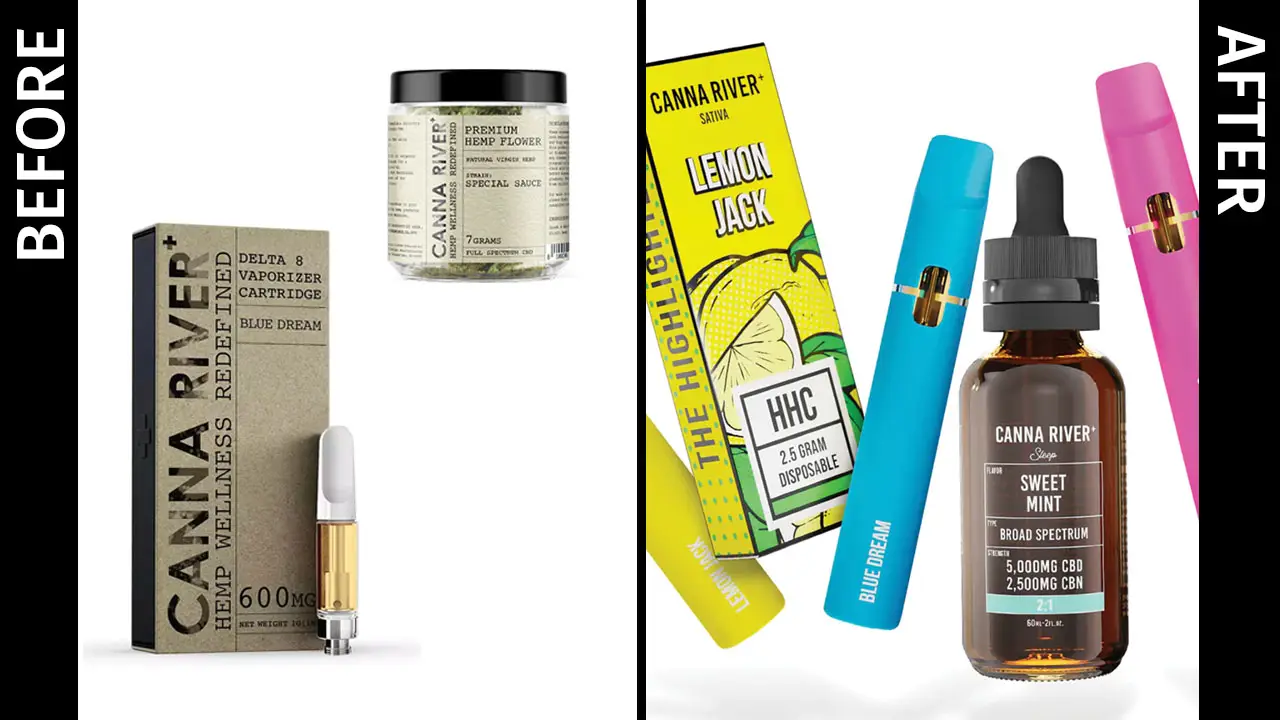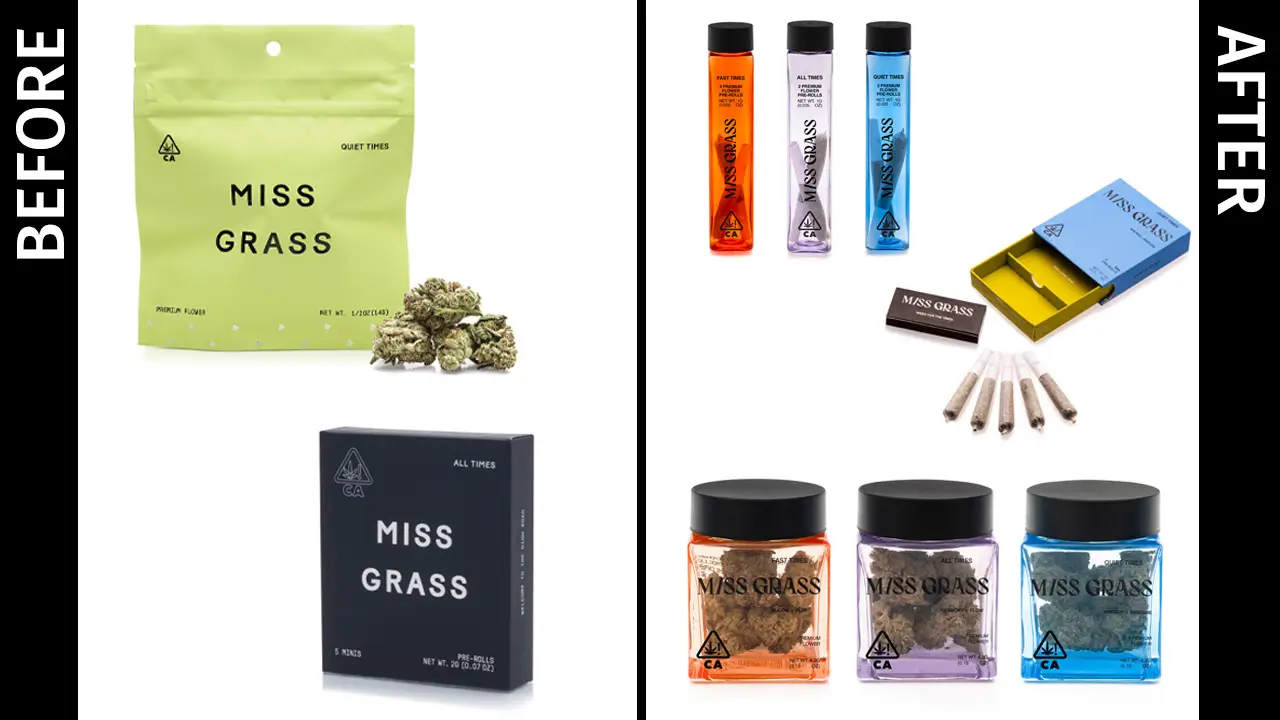Business
Marijuana packaging rebrands can draw consumers, create cohesion, reflect values

A strong brand can give companies name recognition and longevity – a key consideration for marijuana companies as they expand into states with newly regulated markets.
Businesses undergo rebranding for myriad reasons, but getting it right is challenging, said Elizabeth Corbett, vice president of sales at AE Global, a Florida-based packaging solutions company that helps cannabis operators with rebranding.
Corbett said companies rebrand for four main reasons:
- They’re repositioning the brand to better reflect its spirit and identity.
- The brand has become stale and needs a refresh.
- The product has changed in terms of its ingredients, efficacy or characteristics.
- The company is addressing sustainability – either through the product itself or its packaging, which can significantly change the look and feel of a brand.
“As the cannabis industry becomes more mature, particularly in states such as California, the market has become saturated and very competitive,” Corbett said.
“Getting the right branding and packaging design is an absolute must in order to separate yourself from the crowd and drive revenue.”
MJBizMagazine spoke with companies that recently underwent a rebrand. Here’s what they had to say:
Change in Rhythm
San Francisco-based Rhythm launched a line of hemp-derived, CBD-infused beverages in August 2020.
The company originally offered its products exclusively online through direct-to-consumer sales but has since expanded to include more than 40 wholesale distribution points in five states.
The company’s original packaging was designed by one of its founders, who had a background in graphic design.
But after more than a year of sales and listening to customer feedback, the company determined it needed a new look that would give consumers product information in an easily digestible way, co-founder and CEO Ian Monat said.

The company worked with Voicebox Creative, a Bay Area branding and packaging-design agency, to refresh the identity and create a more memorable presentation.
Rhythm’s original packaging looked like a hard seltzer, giving consumers the impression that it contained alcohol rather than CBD.
Post-rebrand, Rhythm comes in brightly colored cans with the words “Sparkling Hemp Beverage” displayed at the top and the product’s intended purpose – Energy, Hydrate, Recover, Sleep – next to the brand name and flavor.
“We flipped the order of importance,” Monat said. “We pulled the fruit (image) off and promoted the functionality of the beverage.
“If all you see is a strawberry on the can, you don’t know about the magnesium or B vitamins.”
Rhythm also changed what it was calling the “effects” for three of its four beverages: Dream became Sleep, Awake became Energy and Sport became Hydrate. Iconography illustrates the products’ functionality: Sleep has a moon and stars; Hydrate has a runner and Energy is depicted by a lightning bolt.
Escaping an old look
Denver-based Escape Artists – a marijuana manufacturing company that offers pre-rolls, tinctures and topicals – revamped its image to ensure its products stand out as the brand expands into new markets.
For now, the company is focused on regulated Midwest and southwestern markets and has plans to expand to both coasts.
“As we get ready to expand into new markets, I’m excited to get our topicals on shelves all over the country,” Escape Artists CEO Alison Di Spaltro said.
When Escape Artists rebranded, it took the opportunity to improve the sustainability of its packaging while increasing its visibility on store shelves.

Packaging that was once black and white is now teal and gold. Elements are carried across Escape Artists’ product lines to give the brand a more cohesive look.
“It’s not bright and in your face, but it’s recognizable, even down to how we laid out the labels and the font,” Di Spaltro said.
“There’s a lot of required information (on regulated marijuana products). We think the layout and the way we presented it is easier to understand.”
In terms of sustainability, Escape Artists’ glass jars, plastic lids and pre-roll tubes are recyclable. The company also moved to a domestic producer for its exterior boxes, which are made of recyclable cardboard paper.
“The box is to protect the product,” Di Spaltro said. “It’s on bumpy vans (during transport), and jars bounce around and might brush off some of the content on the labels. We’ve done tests without boxes, and they often get banged up without a protective layer.”
Navigating the Canna River
Thousand Oaks, California-based Canna River’s rebrand took the image for its CBD products from earthy and rustic to vibrant and colorful – a move the company says helped boost sales by 134%.
When Canna River launched its earthy, industrial packaging in 2019, it exclusively offered hemp-derived products.
The rebrand coincides with Canna River’s introduction of six new collections that include delta-8 THC, delta-9 THC and hexahydrocannabinol (or HHC) products – another likely reason sales spiked.

“We found that the rustic look wasn’t truly speaking to a broad range of cannabinoid users,” said Amanda Wallace, the company’s chief marketing officer. “It felt very hippyish or industrial-rustic.”
Wallace said the pop art-inspired packaging targets a broader audience with its cheery, bright aesthetic. “Cannabinoids are supposed to be happy,” she added.
Although the language on the packaging hasn’t changed, the design is more focused on showcasing the strength of Canna River’s products by increasing the font size for how much of each cannabinoid is used.
“Our competitors’ products are half the strength and double the money,” Wallace said, adding that Canna River’s products are all priced at less than $100.
Cannabis for women
Miss Grass wants to be the brand that women turn to when they’re looking for quality cannabis.
So, when the Venice, California-based company rebranded earlier this year, it looked for ways to break marijuana’s traditional stoner image.
“A lot of these masculine brands have really dark colors, psychedelic graphics and language catered to male stoner bros,” said Priyanka Pulijal, the company’s creative lead.
“It really perpetuates the stigma around weed being something that is used as a drug to escape reality, rather than that more conscious relationship to the plant.”
With a woman-centric audience in mind, Miss Grass looked at its neon “party” packaging and determined it needed a change to better reflect the more mature female consumer.

“Women are the fastest-growing consumer segment in this industry and the most underserved,” Pulijal said.
“We’re striving to offer something that taps into this femininity and breaks the traditional stoner trope. This is an opportunity to own what feminine energy looks like to us through packaging colors and expressions.”
Color was key to bringing the idea to life.
The goal for Miss Grass’ new color-coded packaging is to reflect what’s in the jars, tubes and boxes as well as the effect the product will have on the consumer.
For example, the company’s sativa-dominant Fast Times strain comes in blood orange packaging, the thinking being that both the effect and the color elicit feelings of brightness and physicality.
In contrast, the company’s indica-dominant Quiet Times strain is in sapphire blue to give a sense of calm, sensuality and bliss.
“If you focus on an intention with packaging for a greater purpose, it can help debunk the stoner-bro culture and tap into what your audience wants,” Pulijal said.
“It really makes a difference to … be intentional and conscious and set ourselves apart in a male-dominated industry.”
Source: https://mjbizdaily.com/why-these-cannabis-companies-rebranded-their-packaging/
Business
New Mexico cannabis operator fined, loses license for alleged BioTrack fraud

New Mexico regulators fined a cannabis operator nearly $300,000 and revoked its license after the company allegedly created fake reports in the state’s traceability software.
The New Mexico Cannabis Control Division (CCD) accused marijuana manufacturer and retailer Golden Roots of 11 violations, according to Albuquerque Business First.
Golden Roots operates the The Cannabis Revolution Dispensary.
The majority of the violations are related to the Albuquerque company’s improper use of BioTrack, which has been New Mexico’s track-and-trace vendor since 2015.
The CCD alleges Golden Roots reported marijuana production only two months after it had received its vertically integrated license, according to Albuquerque Business First.
Because cannabis takes longer than two months to be cultivated, the CCD was suspicious of the report.
After inspecting the company’s premises, the CCD alleged Golden Roots reported cultivation, transportation and sales in BioTrack but wasn’t able to provide officers who inspected the site evidence that the operator was cultivating cannabis.
In April, the CCD revoked Golden Roots’ license and issued a $10,000 fine, according to the news outlet.
The company requested a hearing, which the regulator scheduled for Sept. 1.
At the hearing, the CCD testified that the company’s dried-cannabis weights in BioTrack were suspicious because they didn’t seem to accurately reflect how much weight marijuana loses as it dries.
Company employees also poorly accounted for why they were making adjustments in the system of up to 24 pounds of cannabis, making comments such as “bad” or “mistake” in the software, Albuquerque Business First reported.
Golden Roots was fined $298,972.05 – the amount regulators allege the company made selling products that weren’t properly accounted for in BioTrack.
The CCD has been cracking down on cannabis operators accused of selling products procured from out-of-state or not grown legally:
- Regulators alleged in August that Albuquerque dispensary Sawmill Sweet Leaf sold out-of-state products and didn’t have a license for extraction.
- Paradise Exotics Distro lost its license in July after regulators alleged the company sold products made in California.
Golden Roots was the first alleged rulebreaker in New Mexico to be asked to pay a large fine.
Source: https://mjbizdaily.com/new-mexico-cannabis-operator-fined-loses-license-for-alleged-biotrack-fraud/
Business
Marijuana companies suing US attorney general in federal prohibition challenge

Four marijuana companies, including a multistate operator, have filed a lawsuit against U.S. Attorney General Merrick Garland in which they allege the federal MJ prohibition under the Controlled Substances Act is no longer constitutional.
According to the complaint, filed Thursday in U.S. District Court in Massachusetts, retailer Canna Provisions, Treevit delivery service CEO Gyasi Sellers, cultivator Wiseacre Farm and MSO Verano Holdings Corp. are all harmed by “the federal government’s unconstitutional ban on cultivating, manufacturing, distributing, or possessing intrastate marijuana.”
Verano is headquartered in Chicago but has operations in Massachusetts; the other three operators are based in Massachusetts.
The lawsuit seeks a ruling that the “Controlled Substances Act is unconstitutional as applied to the intrastate cultivation, manufacture, possession, and distribution of marijuana pursuant to state law.”
The companies want the case to go before the U.S. Supreme Court.
They hired prominent law firm Boies Schiller Flexner to represent them.
The New York-based firm’s principal is David Boies, whose former clients include Microsoft, former presidential candidate Al Gore and Elizabeth Holmes’ disgraced startup Theranos.
Similar challenges to the federal Controlled Substances Act (CSA) have failed.
One such challenge led to a landmark Supreme Court decision in 2005.
In Gonzalez vs. Raich, the highest court in the United States ruled in a 6-3 decision that the commerce clause of the U.S. Constitution gave Congress the power to outlaw marijuana federally, even though state laws allow the cultivation and sale of cannabis.
In the 18 years since that ruling, 23 states and the District of Columbia have legalized adult-use marijuana and the federal government has allowed a multibillion-dollar cannabis industry to thrive.
Since both Congress and the U.S. Department of Justice, currently headed by Garland, have declined to intervene in state-licensed marijuana markets, the key facts that led to the Supreme Court’s 2005 ruling “no longer apply,” Boies said in a statement Thursday.
“The Supreme Court has since made clear that the federal government lacks the authority to regulate purely intrastate commerce,” Boies said.
“Moreover, the facts on which those precedents are based are no longer true.”
Verano President Darren Weiss said in a statement the company is “prepared to bring this case all the way to the Supreme Court in order to align federal law with how Congress has acted for years.”
While the Biden administration’s push to reschedule marijuana would help solve marijuana operators’ federal tax woes, neither rescheduling nor modest Congressional reforms such as the SAFER Banking Act “solve the fundamental issue,” Weiss added.
“The application of the CSA to lawful state-run cannabis business is an unconstitutional overreach on state sovereignty that has led to decades of harm, failed businesses, lost jobs, and unsafe working conditions.”
Business
Alabama to make another attempt Dec. 1 to award medical cannabis licenses

Alabama regulators are targeting Dec. 1 to award the first batch of medical cannabis business licenses after the agency’s first two attempts were scrapped because of scoring errors and litigation.
The first licenses will be awarded to individual cultivators, delivery providers, processors, dispensaries and state testing labs, according to the Alabama Medical Cannabis Commission (AMCC).
Then, on Dec. 12, the AMCC will award licenses for vertically integrated operations, a designation set primarily for multistate operators.
Licenses are expected to be handed out 28 days after they have been awarded, so MMJ production could begin in early January, according to the Alabama Daily News.
That means MMJ products could be available for patients around early March, an AMCC spokesperson told the media outlet.
Regulators initially awarded 21 business licenses in June, only to void them after applicants alleged inconsistencies with how the applications were scored.
Then, in August, the state awarded 24 different licenses – 19 went to June recipients – only to reverse themselves again and scratch those licenses after spurned applicants filed lawsuits.
A state judge dismissed a lawsuit filed by Chicago-based MSO Verano Holdings Corp., but another lawsuit is pending.
Source: https://mjbizdaily.com/alabama-plans-to-award-medical-cannabis-licenses-dec-1/
-

 Business2 years ago
Business2 years agoPot Odor Does Not Justify Probable Cause for Vehicle Searches, Minnesota Court Affirms
-

 Business2 years ago
Business2 years agoNew Mexico cannabis operator fined, loses license for alleged BioTrack fraud
-

 Business2 years ago
Business2 years agoAlabama to make another attempt Dec. 1 to award medical cannabis licenses
-

 Business2 years ago
Business2 years agoWashington State Pays Out $9.4 Million in Refunds Relating to Drug Convictions
-

 Business2 years ago
Business2 years agoMarijuana companies suing US attorney general in federal prohibition challenge
-

 Business2 years ago
Business2 years agoLegal Marijuana Handed A Nothing Burger From NY State
-

 Business2 years ago
Business2 years agoCan Cannabis Help Seasonal Depression
-

 Blogs2 years ago
Blogs2 years agoCannabis Art Is Flourishing On Etsy







